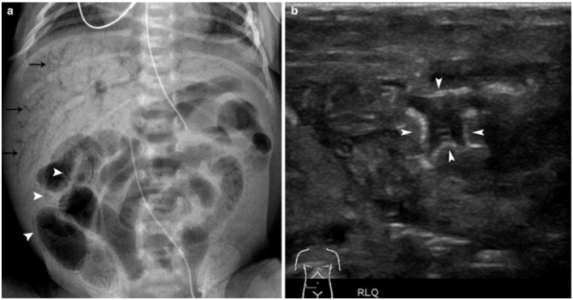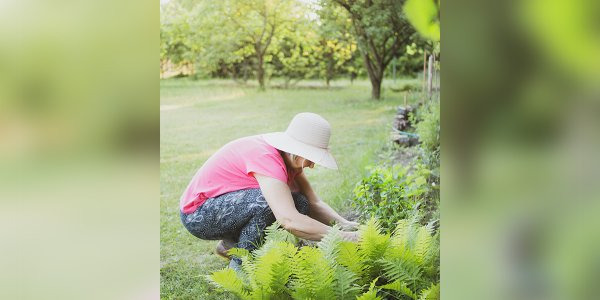Deadly illness grips Sydney woman—could her pet cat be the cause?
When it comes to our health, it’s always important to be aware of the possible diseases that could affect our well-being. However, even if we’re careful, a simple misstep could unknowingly lead to a potential infection caused by viruses or bacteria around us.
Unfortunately, this is the situation one Sydney woman found herself in recently after being diagnosed with a potentially deadly infection after playing with her cat.
The woman, 48, tested positive for the bacteria Clostridium chauvoei, a rare pathogen that has so far only been implicated in fatal human cases.
This bacteria leads to Necrotising enterocolitis (NEC) disease, which is commonly associated with Blackleg disease in sheep and cattle and premature infants.
It results in tissue inflammation in the intestines, leading to death in intestinal tissues in some cases, with symptoms such as abdominal swelling and bloody stools.
But how did the woman come into contact with the bacteria?
It is believed she was exposed to the bacteria after gardening with bare hands after playing with her cat. The cat scratched her hands and caused open wounds, which had been exposed to the soil.
She was immediately rushed to the hospital after the infection developed and underwent ‘emergency surgery’ for the damage to her bowel. She spent ten days in treatment.
According to the Medical Journal of Australia, NEC ‘was previously considered lethal', and the woman’s recovery now gives hope that others could overcome the illness, too.
Researchers now claim that early antibiotics, surgery, and hyperbaric oxygen therapy can treat the illness.
The journal also published an article about this case, writing:
‘A 48‐year‐old woman presented with three days of nausea and vomiting and two days of worsening right‐sided lower abdominal pain. Diarrhoea developed soon after the presentation. She denied sick contacts and recent overseas travels but recalled prolonged handling of gardening soil with bare hands while having multiple superficial skin lacerations acquired from a domestic cat.’
The Sydney Local Health District did not disclose additional details about this due to patient confidentiality.
According to researchers from the University of New South Wales, the woman’s experience is only the third case where this pathogen has infected humans.
In the two previous cases, both patients passed away after developing the fatal gastrointestinal disease.
Though it can be a cause for concern for people of all ages, NEC is usually most dangerous for babies, particularly premature ones, whose underdeveloped gastrointestinal systems may be more prone to inflammation and tissue damage in the intestines.
A case of this was brought to light in August 2022 when Grayson Deborre—born 11 weeks premature—tragically passed away after contracting the deadly disease.

It pays to be extra careful when gardening with bare hands.
For your safety, wear gardening gloves, especially if you have open wounds on your hands.
What do you think of this story, members? Share your thoughts in the comments below!
Unfortunately, this is the situation one Sydney woman found herself in recently after being diagnosed with a potentially deadly infection after playing with her cat.
The woman, 48, tested positive for the bacteria Clostridium chauvoei, a rare pathogen that has so far only been implicated in fatal human cases.
This bacteria leads to Necrotising enterocolitis (NEC) disease, which is commonly associated with Blackleg disease in sheep and cattle and premature infants.
It results in tissue inflammation in the intestines, leading to death in intestinal tissues in some cases, with symptoms such as abdominal swelling and bloody stools.
But how did the woman come into contact with the bacteria?
It is believed she was exposed to the bacteria after gardening with bare hands after playing with her cat. The cat scratched her hands and caused open wounds, which had been exposed to the soil.
She was immediately rushed to the hospital after the infection developed and underwent ‘emergency surgery’ for the damage to her bowel. She spent ten days in treatment.
According to the Medical Journal of Australia, NEC ‘was previously considered lethal', and the woman’s recovery now gives hope that others could overcome the illness, too.
Researchers now claim that early antibiotics, surgery, and hyperbaric oxygen therapy can treat the illness.
The journal also published an article about this case, writing:
‘A 48‐year‐old woman presented with three days of nausea and vomiting and two days of worsening right‐sided lower abdominal pain. Diarrhoea developed soon after the presentation. She denied sick contacts and recent overseas travels but recalled prolonged handling of gardening soil with bare hands while having multiple superficial skin lacerations acquired from a domestic cat.’
The Sydney Local Health District did not disclose additional details about this due to patient confidentiality.
According to researchers from the University of New South Wales, the woman’s experience is only the third case where this pathogen has infected humans.
In the two previous cases, both patients passed away after developing the fatal gastrointestinal disease.
Though it can be a cause for concern for people of all ages, NEC is usually most dangerous for babies, particularly premature ones, whose underdeveloped gastrointestinal systems may be more prone to inflammation and tissue damage in the intestines.
A case of this was brought to light in August 2022 when Grayson Deborre—born 11 weeks premature—tragically passed away after contracting the deadly disease.
Key Takeaways
- A 48-year-old woman from Sydney recovered from a potentially fatal infection, Necrotising enterocolitis (NEC), contracted from the bacteria Clostridium chauvoei.
- The bacteria are usually associated with the fatal black leg in sheep and cattle and are rarely found in humans. The woman likely came into contact with it while gardening with her bare hands after her cat scratched her.
- Researchers at the University of New South Wales found only two other cases where humans were infected with the bacteria, both of which were fatal.
- Early antibiotic treatment, surgery and hyperbaric oxygen therapy are now believed to be effective against Clostridium chauvoei, making the illness 'survivable'.
It pays to be extra careful when gardening with bare hands.
For your safety, wear gardening gloves, especially if you have open wounds on your hands.
What do you think of this story, members? Share your thoughts in the comments below!









